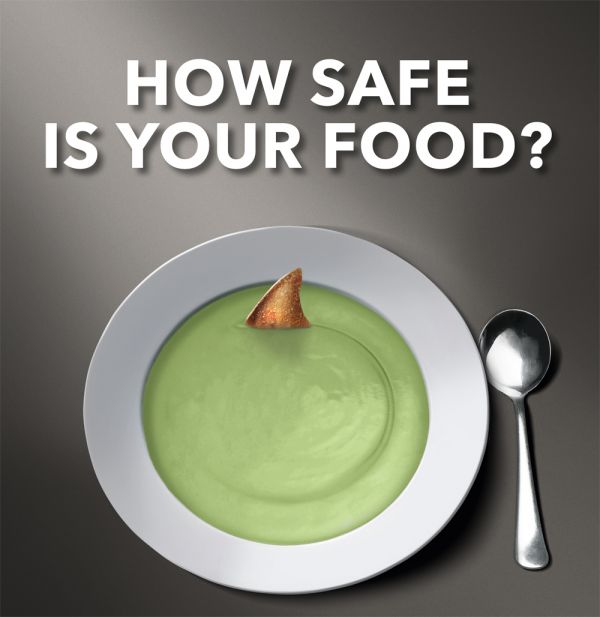The World Health Organization (WHO) raises awareness for a public health concern every year for World Health Day. This year WHO is hoping to make a difference for those susceptible to food borne diseases. Know how food borne disease affect you:
1 ) More than 200 diseases are spread through food.
Millions of people fall ill every year and many die as a result of eating unsafe food. Most of these illnesses are attributed to contaminated food or drinking water. Proper food preparation can prevent most food borne diseases.
2) Contaminated food can cause long-term health problems.
The most common symptoms of food borne disease are stomach pains, vomiting and diarrhea. Food contaminated with heavy metals or with naturally occurring toxins can also cause long-term health problems including cancer and neurological disorders.
3) Foodborne diseases affect vulnerable people harder than other groups.
Infections caused by contaminated food have a much higher impact on populations with poor or fragile health status and can easily lead to serious illness and death. For infants, pregnant women, the sick and the elderly, the consequences of food borne disease are usually more severe and may be fatal.

4) There are many opportunities for food contamination to take place.
Today’s food supply is complex and involves a range of different stages including on-farm production, slaughtering or harvesting, processing, storage, transport and distribution before the food reaches the consumers.
5) Globalization makes food safety more complex and essential.
Globalization of food production and trade is making the food chain longer and complicates foodborne disease outbreak investigation and product recall in case of emergency.
6) Food safety is multisectoral and multidisciplinary.
To improve food safety, a multitude of different professionals are working together, making use of the best available science and technologies. Different governmental departments and agencies, encompassing public health, agriculture, education and trade, need to collaborate and communicate with each other and engage with the civil society including consumer groups.
7) Food contamination also affects the economy and society as a whole.
Food contamination has far reaching effects beyond direct public health consequences – it undermines food exports, tourism, livelihoods of food handlers and economic development, both in developed and developing countries.
8) Some harmful bacteria are becoming resistant to drug treatments.
Antimicrobial resistance is a growing global health concern. Overuse and misuse of antimicrobials in agriculture and animal husbandry, in addition to human clinical uses, is one of the factors leading to the emergence and spread of antimicrobial resistance. Antimicrobial-resistant bacteria in animals may be transmitted to humans via food.
9) Everybody has a role to play in keeping food safe.
Food safety is a shared responsibility between governments, industry, producers, academia, and consumers. Everyone has a role to play. Even local communities, women’s groups and school education play an important role.
10) Consumers must be well informed on food safety practices.
People should make informed and wise food choices and adopt adequate behaviors. They should know common food hazards and how to handle food safely, using the information provided in food labeling. Read the five tips for food safety
